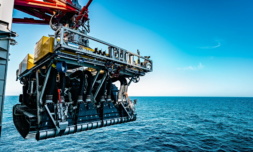Leveraging the mission to save coral reef species, Canon has donated high-end image capturing equipment to London-based Coral Spawning Lab.
Though virtually all life on Earth is under threat from climate change, the most fragile ecosystems by far are coral reefs.
Hoping to ensure their future survival, laboratories around the world are growing and breeding a diverse range of heat-resistant corals inside environmentally controlled tanks.
In these labs, scientists closely monitor and photograph the growing corals to assess their health. If deemed healthy and strong, the corals can be relocated to natural reef hotspots where they can work to support the marine life around them.
One lab focused on this task is located in London, England. Named Coral Spawning Lab, its scientists are primarily focused on observing the magnificent spawning event that all coral species undergo once per year.
In complete synchronicity, global corals release sperm and eggs into their surrounding waters. The sperm and eggs drift towards each other and meet to produce coral larvae.
Of course, these happenings are hardly visible to the naked eye. Witnessing and documenting them requires start-of-the-art imaging equipment, which doesn’t come without a steep price tag.
This is why Canon, one of the world’s largest camera producers, has agreed to provide Coral Spawning Lab with specialized imaging equipment. It hopes to help the researchers build a comprehensive photographic database of coral lifespans.




















